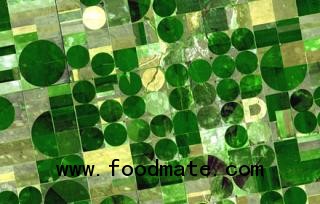
Emissions across the entire food system -- including manufacturing fertilizer, as well as transporting and refrigerating food -- need to be reduced as they total somewhere between 19% and 29% of man-made greenhouse gases, a study from the Consultative Group on International Agricultural Research said.
"We are coming to terms with the fact that agriculture is a critical player in climate change," said Frank Rijsberman, chief executive of the global grouping of research organizations. "Not only are emissions from agriculture much larger than previously estimated, but with weather records being set every month... there is an urgent need for research that helps smallholder farmers adapt," he added.
The United Nations estimates agriculture accounts for around 14% of all greenhouse gas emissions, using a narrower definition of farming, but says the sector has great potential to cut large amounts of carbon from the atmosphere.
CGIAR's study, 'Climate Change and Food Systems,' said most of the promising resolutions tackle efficient usage of resources or risk management in agriculture and the postproduction food supply chain. It added many solutions are low-cost, based on current knowledge and constitute good practice, although information and institutional support remain barriers to wider implementation.
"Food-related emissions and the impacts of climate change on agriculture and the food system will profoundly alter the way we grow and produce food," said Sonja Vermeulen, lead author of the study. "This will affect different parts of the world in radically different ways, but all regions will have to change their current approach to what they grow and eat," she added.
Yields of the world's three biggest crops -- corn, rice and wheat -- will decrease in many developing countries as temperatures rise and rainfall becomes more unpredictable, according to CGIAR' study, 'Recalibrating Food Production in the Developing World.'
Climate change could cause irrigated wheat and rice yields in developing countries to fall by more than 10% by 2050, the study said, while feeding livestock with grain will become more expensive. The availability of fish will also become more constrained, it added, as they're particularly susceptible to increased temperatures and higher ocean salinity.
"The good news is that if farmers and food producers start to adapt now, they can stave off some of the dour food production and distribution scenarios," said Philip Thornton, its author.







